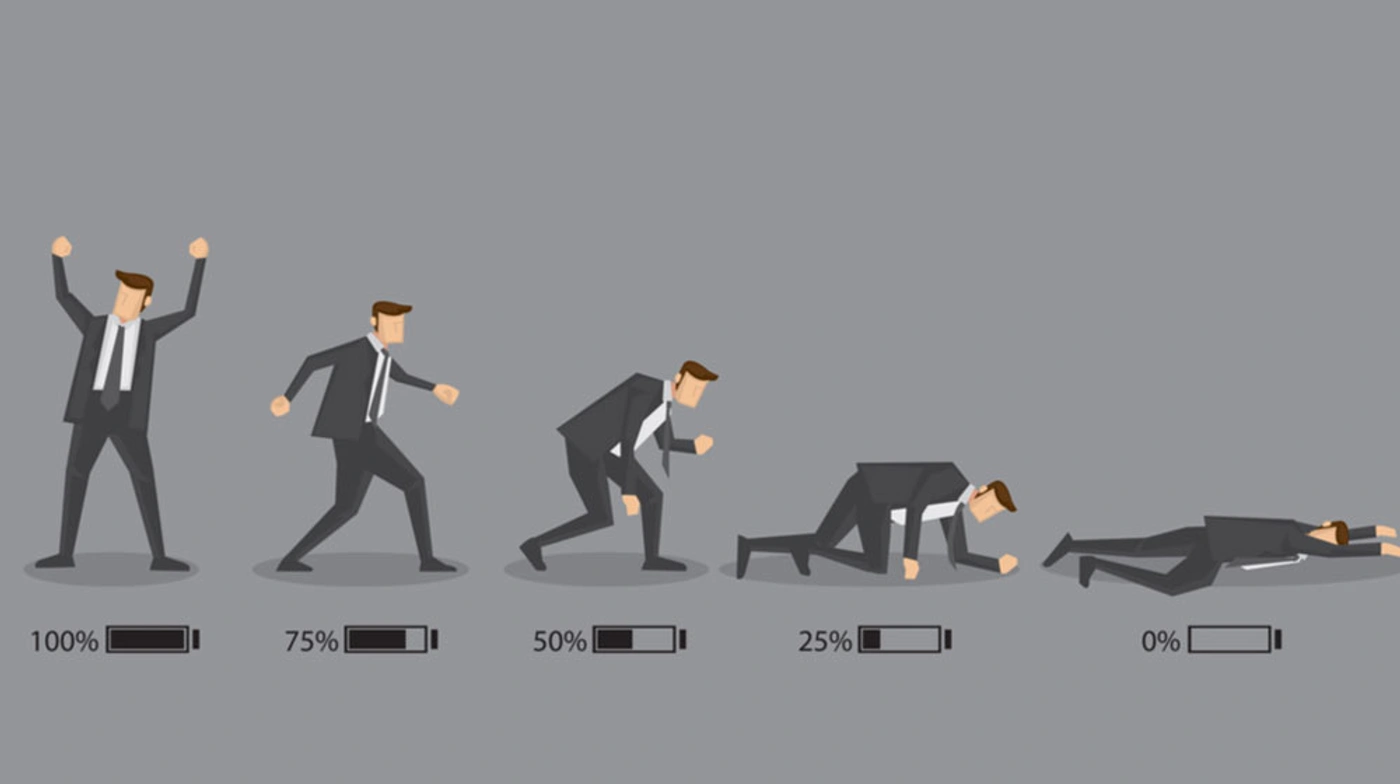Telecommuting: is there a risk of burn-out or bore-out?

Here are two distinct terms that lead to the same conclusion: burnout at work. One is caused by too much work and the other by a lack of work. Due to the health crisis, teleworking has become widespread for students and companies. Does this new practice lead us to one of these two syndromes?
Burnout
We all know burnout, which is a syndrome of physical and mental exhaustion caused by stress at work. This term is still relevant, by working from home, you can also find yourself in burnout.
With repeated lockdowns and teleworking, there are two types of people: those who can slow down and those who, on the contrary, have to manage everything at the same time.
According to a study by the CSA institute in collaboration with Linkedin France, nearly a quarter of French people (23%) say they have been exposed to a risk of burnout during the lockdown, and nearly half of young people (46%). When you are close to burnout, you have to listen to your body, and the signals to protect yourself from it. Often, we don't realize it, because we are in an energy mechanism where we no longer feel that our body is exhausted.
This problem of burnout from work is all the more complicated to detect when working with your employees remotely.
From a distance, it's complicated to feel that someone is not well. It is therefore essential to plan time for exchanges in order to see how your employees are coping with the workload. It is also the responsibility of employees to know how to say no and to draw a line.
Bore-out
Bore-out is the opposite scenario. It comes from the English boring, which means boring. It refers to the syndrome of burnout due to boredom. Lack of work, boring tasks, lack of meaning or well-defined tasks can cause bore-out.
It is a psychological disorder that affects more and more employees. To this day, it is not politically correct to say that you are bored at work, when being overwhelmed is synonymous with involvement. And yet, according to a Stepone study, 32% of employees are affected by boredom at work. Still according to the CSA and Linkedin study, during the lockdown, 28% of French people felt close to bore-out at some point during this period.
In view of the situation, some people were subjected to an intense pace of work and found themselves on short-time work, without any tasks in their agenda.
In this situation, boredom is linked to the sudden break in a rhythm in the activity. As a result, people have to completely restructure their time and lives, which is very difficult to manage. Boredom can be beneficial if it is chosen, but in this case, it is endured.
It is synonymous with fatigue, depression and low self-esteem. We dream of doing nothing, and yet spending our days killing time would be as bad as working too much.
The consequences are numerous and are similar to those of burnout, sleep disorders, depression, stress, chronic fatigue, etc. In order to become aware of your situation, you must talk about it and notify your superiors.
Discover our positive impact companies
Meet My Job is the 1st Belgian recruitment platform dedicated to sustainable development. So, what are you waiting for? Find your dream job/internship in sustainability here !